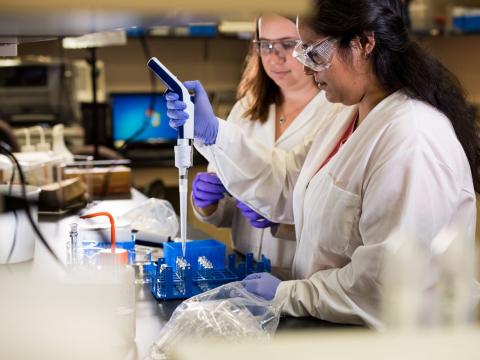Project Interns
Project Interns
Learning on the job at PNNL
Learning on the job at PNNL
As a project intern at PNNL, you will explore research and technology career options— all while gaining practical training and getting paid. You’ll conduct research in close collaboration and under the guidance of one or more of our researchers and engineers. This internship is open to college and graduate students pursuing a variety of STEM degrees.
Internships may last anywhere from 10 weeks in a summer to an entire academic year and beyond. Through its internship programs, PNNL hopes to increase the number of students who earn advanced degrees and careers in STEM and grow a STEM-capable workforce.

Applying for an Internship
Find opportunities for project internship positions. Search the PNNL careers site using the search terms “intern” or “internship.” Because these opportunities come from diverse areas of PNNL, each individual internship may have specific requirements and different closing dates.
Collect the items below and then bundle them into one PDF file. The system will only accept one uploaded file. Please be careful— if you make a mistake, you will need to create a new profile and start the process over.
Cover Letter: Explain why you are applying. Be specific. Why do you want a project internship opportunity? Convince the reader to look at your application. Your cover letter will be seen first; therefore, it must be well written and specific to the job you are applying for.
Resume: Provide educational background and academic information. You may want to include advanced placement courses, a list of any computer programming courses or experiences, and/or office skills. Include two personal references.
Unofficial Transcript: Ask your school registrar for a copy of your transcript.
Personal Statement or Essay: Describe who you are beyond your academic achievements and potential. Offer information regarding the kinds of activities, leadership, or impactful experiences you’ve had that contributed toward your interest in STEM courses and career pathways.